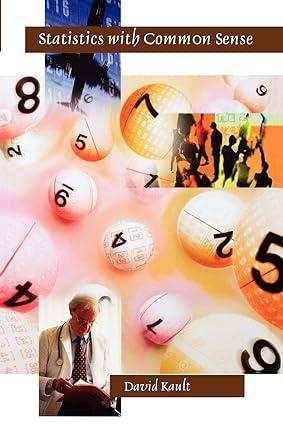In each of the following cases decide whether the hypothesis listed is appropriate as a null hypothesis
Question:
In each of the following cases decide whether the hypothesis listed is appropriate as a null hypothesis that could be tested by collecting appropriate data. If you decide the hypothesis is not appropriate as a null hypothesis, state why not. If you believe that the null hypothesis is appropriate, state how strongly attached you are to the null hypothesis. How strongly attached you are to the null hypothesis should be expressed in terms of the rarity of event that would make you reject the null hypothesis. In other words, for certain moderate values of x you would not reject the null hypothesis if an event occurs that has 1 chance in x of occuring when the null hypothesis is true, even though the event is more likely to occur when the null hypothesis is false. The question is how big would x have to be before it was just enough to force you to change your mind and reject the null hypothesis. Give brief reasons for your opinions.
a. A rubber strip hanging between a car bumper and the road surface has no effect on motion sickness associated with car travel.
b. Short and tall people are equally good at basketball.
c. Male and female students are equally good at statistics.
d. The astrology column in a weekly magazine does not predict peoples' futures.
e. Vaccination against measles does not reduce your chance of catching measles.
f. Students learn just as well when lecture notes are written on a blackboard as when they are presented in the form of transparencies displayed with overhead projectors.
g. Motorcyclists and car drivers have equal chances of fatal road accidents. POLI967
Step by Step Answer:






